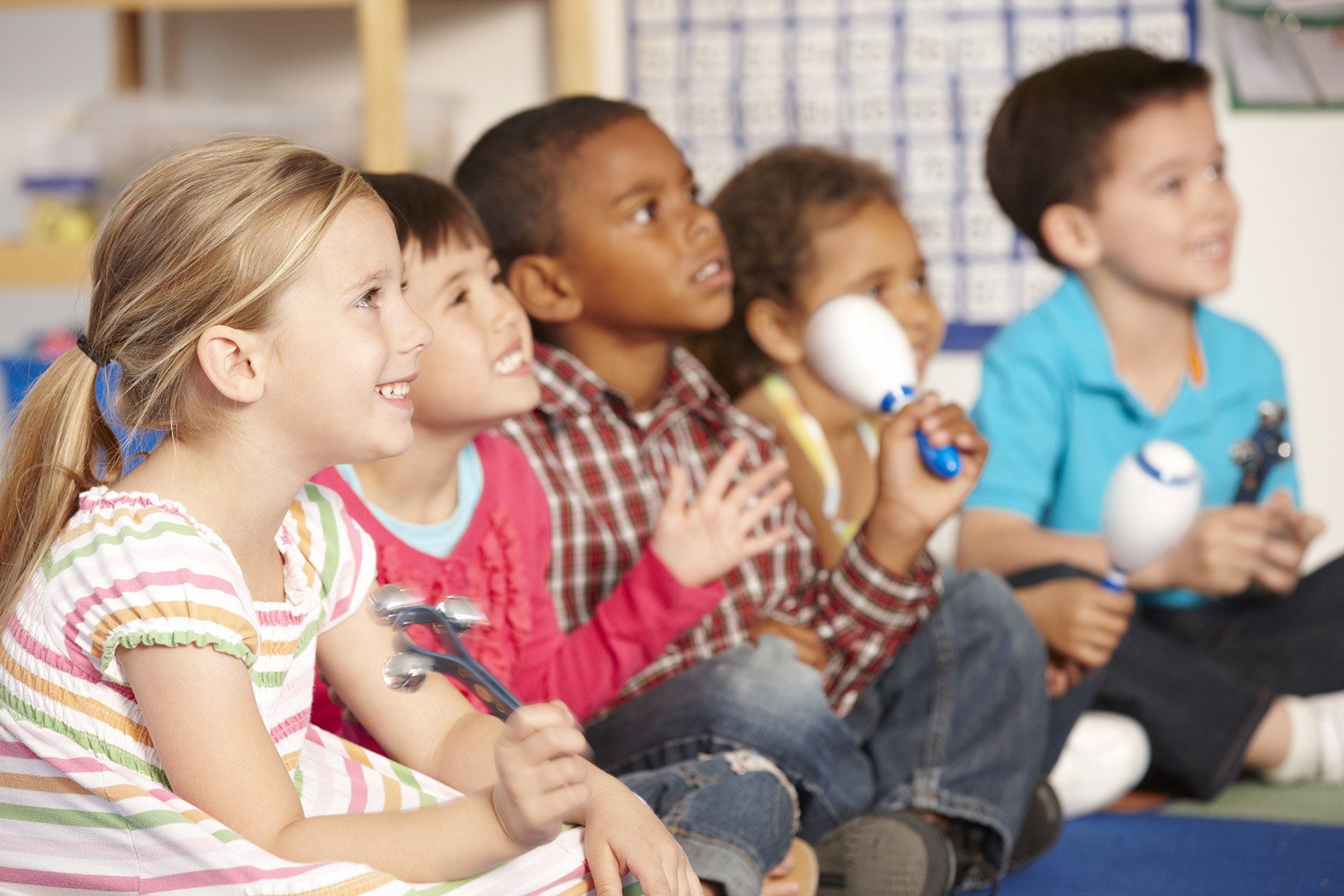Music
Our Curriculum
At St William’s Catholic Primary School, our curriculum stems from our Mission Statement:
‘By following Jesus’ example, standing side by side, we will nurture each other to fulfil our hopes and dreams’.
We are passionate about helping every child to fulfil their potential and become an all-round versatile citizen with the skills needed to succeed in life. We design our curriculum to ensure it is fully inclusive of every child and that it addresses each aspect of how a child develops, progresses and grows both academically and emotionally. We recognise that we live in a rapidly changing digital world and at St William’s we want to enable our children to not just learn WHAT to think, but HOW to think by developing intellectual learning behaviours. ‘Thinking’ is at the heart of our curriculum because our intent is to future proof our children so they become independent and resilient citizens.
-
Intent
St William’s Catholic Primary School understands that music can inspire and motivate children, and play an important role in their personal development. Music can also help children develop a greater appreciation of the world we live in, by understanding different cultures and societies through music.
St William’s Catholic Primary School delivers a broad and balanced music curriculum, in line with national requirements, which enables pupils to:
- Perform, listen to, review and evaluate music across a range of historical periods, genres styles and traditions, including the works of the great composers and musicians.
- Learn to sing and use their voices.
- Create and compose music on their own and alongside their peers.
- Have the opportunities to learn a musical instrument, use technology properly and to progress to the next level of musical excellence.
- Understand and explore how music is created, produced and communicated, including through the inter-related dimensions: pitch, duration, dynamics, tempo, timbre, texture, structure and appropriate musical notations..
-
Implementation
At St William’s Catholic Primary School we work hand in hand with Wigan Music Service who deliver the teaching of Music from Y1 to Y6. The curriculum has been designed to ensure that all pupils are taught the statutory requirements within the National Curriculum.
Throughout EYFS, children begin their learning journey for music, by singing a range of well-known nursery rhymes and songs as part of the expressive arts and design, being imaginative and expressive section of the Early Learning Goals. They perform songs, rhymes, poems and stories with others, and learn to move in time with music.
We aim to plan our Music programme of study with a creative approach ensuring that regular cross curricular opportunities are provided to enhance the teaching of other subjects. The Music curriculum compliments the topics that are taught in school, where appropriate, showing clear progression of skills within each year group.
We aim to make music an enjoyable and exciting learning experience. We encourage children of all abilities and ages to participate in a variety of musical experiences that aim to build their confidence. Singing lies at the heart of good music teaching. Our teaching focuses on developing the children’s ability to sing in tune and with other people. Through singing songs, children learn about the structure and organisation of music. We teach them to listen to and appreciate different forms of music. As children get older, we expect them to maintain their concentration for longer and to listen to more extended pieces of music. Children develop descriptive skills in music lessons when learning about how music can represent feelings and emotions. We teach them the disciplined skills of recognising pulse and pitch. We often teach them together. We also teach children to make music together, to understand musical notation and to compose pieces.
We teach Music as a discrete subject, across both key stages children will develop and apply listening skills, knowledge and understanding through practical, creative activities which incorporate performing, composing and appraising. They will experience a wide range of music from different historical periods and genres. Therefore, by the end of Year 6, all children should have a wealth of knowledge to support them on their journey to become cultural citizens.
-
Impact
Evidence of pupil’s Music work can be found within the children’s folders (Key Stage 1 and 2), observations (Early Years) or as wall displays within the school environment. This may be in the form of videos, photographs, photocopies or the children’s original work. The subject leader will keep samples of the children’s
work in a portfolio. This demonstrates the expected level of achievement in Music for each year group.
Monitoring in Music includes, pupil work scrutinies, lesson observations and/or learning walks, pupil and/or staff voice. This provides an accurate and comprehensive understanding of the quality of education in Music.
Teachers will assess children’s work in Music by making informal judgements during lessons. On completion of a piece of work, the teacher assesses the work against the skills being developed using the traffic light system, and uses this assessment to plan for future learning. Quality verbal feedback is given to the child to help guide his/her progress. Older children are encouraged to make judgements about how they can improve their own work and discuss this with both their peers and their Teachers.
If throughout the year, children are not making progress against the learning objectives, it is the responsibility of the music teacher and class teacher to seek support and have a professional discussion with the subject leader
regarding their concerns.
The music teacher is required to assess the children against the National Curriculum at the end of each academic year and the classteacher will record individual pupil’s progress. The subject leader is then responsible
for analysing the data.
-
Key Documentation
-
Helping Your Child With Music at Home
Music as a subject is not just learnt within the classroom, good Music Education is a partnership between the child’s home and school and there are lots of things you can do as a parent/carer to support your child’s journey.
Allowing your child to talk about Music topics at home can be a really good way for them to explore some of the content. Also encouraging your child to practice songs or instruments they are learning in school supports their learning. If you have time, research some of the areas you know are coming up in your child’s Music programme, and share music that you enjoy is one of most important ways to develop a love of Music. Taking opportunities to see live music performances can really supports their Music appreciation journey too.
For additional and information you might felt helpful, please see our ‘Useful Links’ section
-
Useful Links







